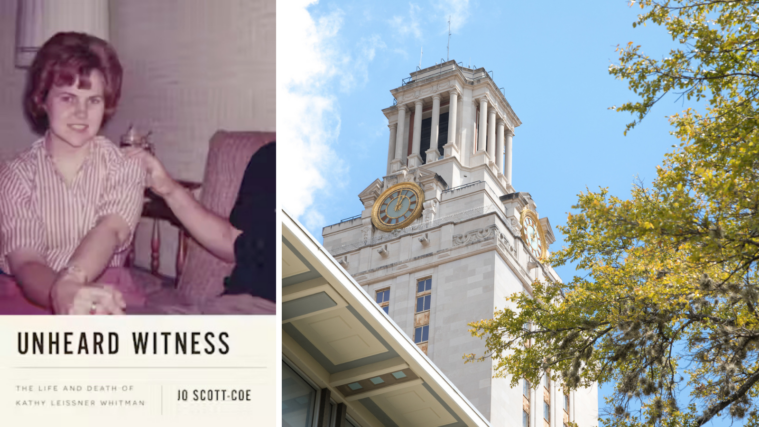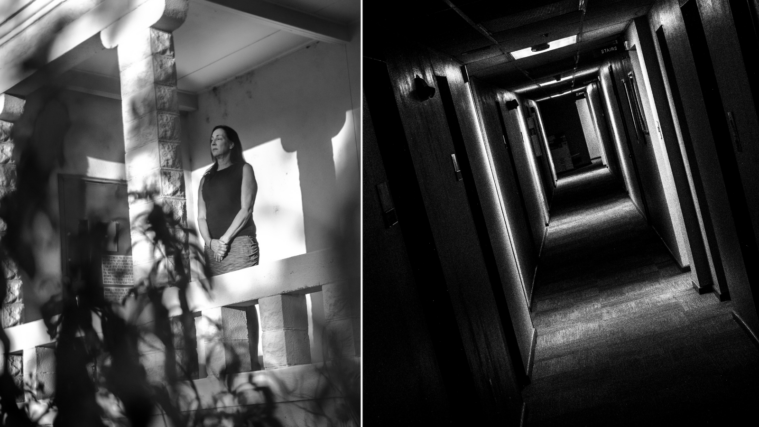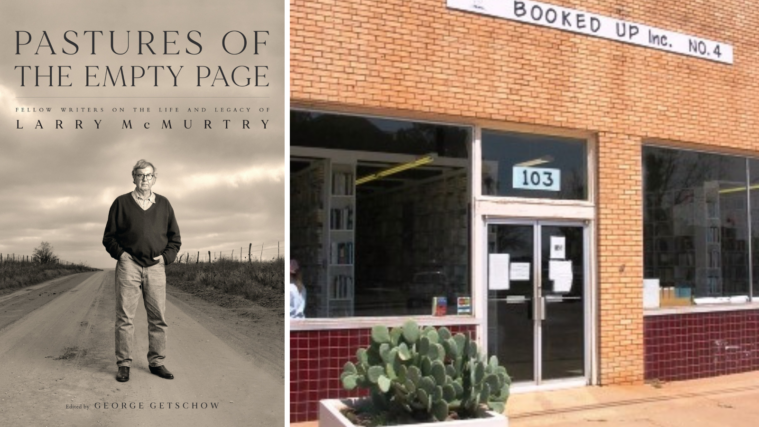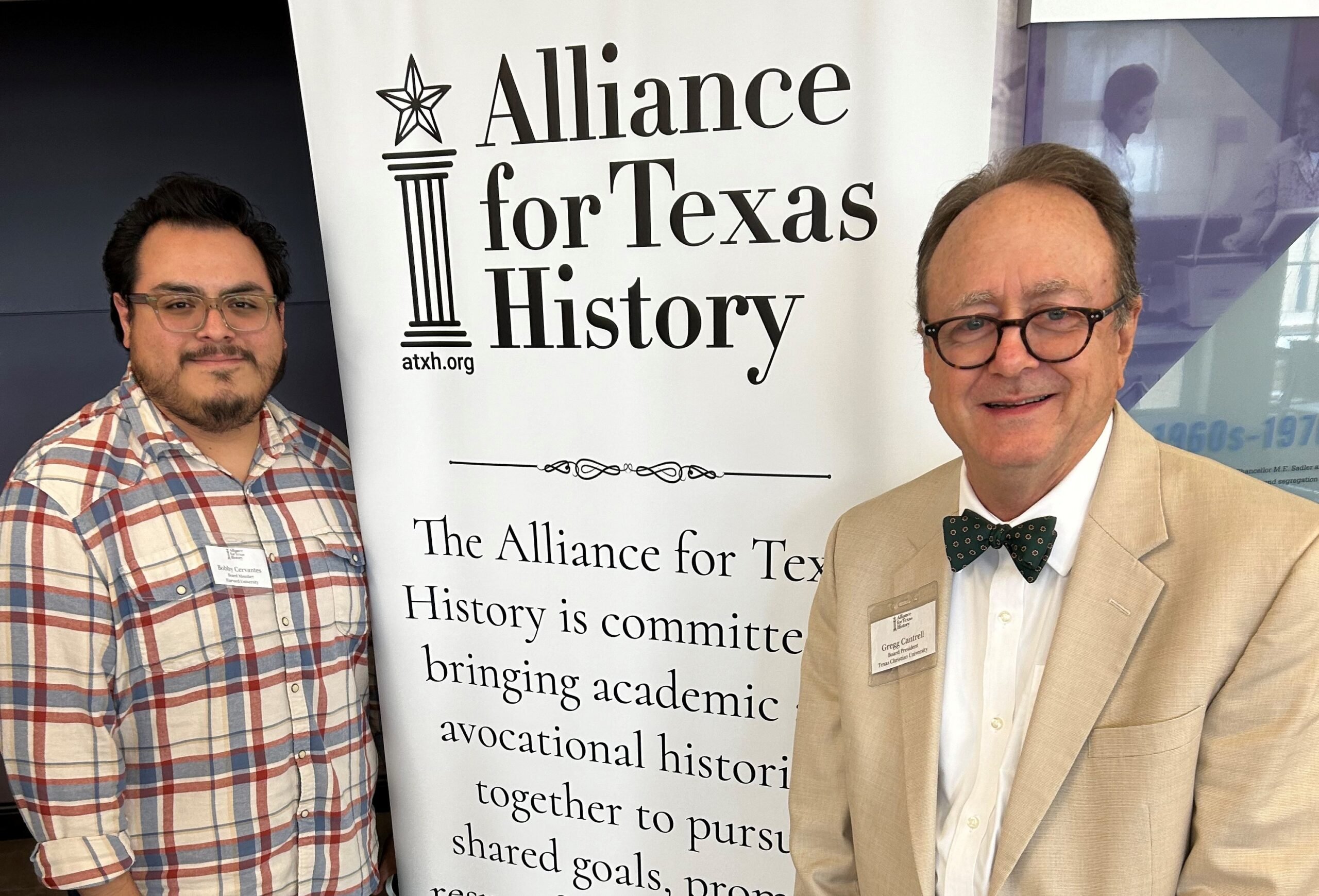
Standing Up for All Texans’ Stories
The new Alliance for Texas History calls for working everyone’s stories “into the fabric of Texas history.”
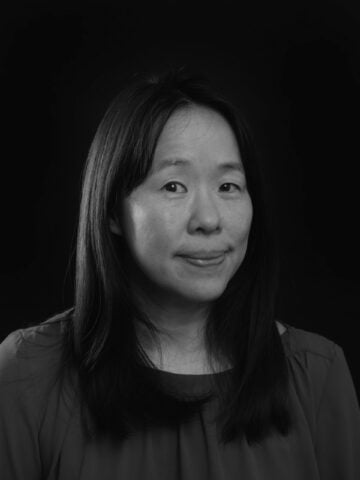
Nearly 150 members of the new Texas Alliance for History, including university professors and students, community historians, and staff members of historical sites and museums gathered Saturday at Texas Christian University in Fort Worth for the event, “Looking Back, Moving Forward.” Their collective goal: to form a group dedicated to sharing untold stories of Texas history, efforts that seem even more crucial in an era when various efforts to diversify the state’s historical record are under fire.
The Alliance for Texas History arose in response to an attack on academic historians in the 127-year-old Texas State Historical Association (TSHA) by executive director J.P. Bryan. In May, the Texas Observer reported how the energy tycoon filed a lawsuit against the president of the board at the time, Nancy Baker Jones, in an attempt to stack the board with more conservative, nonacademic historians, claiming there were too many academics on the board than the bylaws allowed. Bryan dismissed Jones and other academic historians as “woke,” and told the Galveston Daily News that professional historians on the board want to “demean the Anglo efforts in settling the western part of the United States for the purpose of spreading freedoms for all.”
In September, the lawsuit ended when Jones resigned. Many other TSHA members followed her, including its Chief Historian Walter Buenger and Alliance interim president Gregg Cantrell, another longtime board member. “Denigrating academic historians made it impossible for me personally to remain affiliated with TSHA,” Cantrell said.
Already, 425 members have joined the Alliance in its first two months, the organization’s interim president and Texas Christian University history professor Gregg Cantrell told the Observer. Cantrell joined the Alliance after ending his 40-year-long TSHA membership, but emphasized that the Alliance does not bill itself as an alternative to TSHA; some historians remain members of both organizations.
Former TSHA board member and history professor at Texas A&M University Sonia Hernandez also resigned and joined the Alliance as an interim board member. Hernandez, also the co-founder of Refusing to Forget, a project documenting the history of racial violence by the Texas Rangers along the border, said she left after realizing the TSHA leadership “was not interested in having a discussion in defining who was an academic. And I wanted to be part of a society that respects all voices.”
In a phone interview with the Observer, current TSHA president Ken Wise refuted accusations that the organization does not include diverse voices. “Historians can feel however they want, but the TSHA has always and will remain a place where all history practitioners can come together, publish their work, and learn from each other. There hasn’t been a single instance of censorship,” Wise said.
Wise said they now have a balance of academic and nonacademic historians on the board. However, its website lists only five academic Texas historians out of the 24 board members. Six members are former or current corporate CEOs. Twenty are white. Nineteen are men.
One of the Alliance’s newly formed interim board members is Bobby Cervantes, a Rio Grande Valley native and postdoctoral fellow in American history at the Harvard Society of Fellows. “It’s a real testament to the level of dedication that these Texas historians have and also a testament to the interest in an organization like this,” Cervantes said in an interview.
Cervantes, who is writing a book about the history of Texas’ borderland colonias, said, “I never felt like TSHA was a place where I could present my research.”
Cervantes and other members told the Observer that the Alliance, with its mission “to tell accurate, comprehensive, and inclusive history,” offers them support in the face of recent attacks on academic freedoms from the state.
Last legislative session, Governor Greg Abbott signed Senate Bill 17, prohibiting all state-funded colleges and universities from incorporating diversity, equity, and inclusion (DEI) into their hiring policies. All state universities have dismantled DEI programs as a result. More recently, University of Texas employees were dismissed from the University of Texas who had formerly been part of the DEI programs, even though all had been reassigned.
Hernandez said she’s already seeing a dip in the number of applicants of color to Texas A&M’s history program and in the diversity of projects she’s receiving from students. “They are “self-censoring,” she said, in fear of violating the law.
Sarah McGavick, acquisitions editor at the University of Texas Press, told Alliance members that while Senate Bill 17 hasn’t censored their publishing, as it excludes scholarly research and publication, she has seen an impact on what scholars choose to research and write about, even though there is already a dearth of diversity in books on Texas history being published.
During their inaugural event, Alliance members presented information on gaps in the current scholarship of Texas history, a history that has long been “hyper-Anglicized” and “hyper-masculinized” to the exclusion of other diverse voices, said Sam Haynes, director of the Center for Greater Southwestern Studies, and Texas Revolution historian.
But how do researchers explore the history of diverse groups of Texans when their stories were deliberately buried and erased, from books, newspapers, and often from public records? The historians at the Alliance tackled that question by sharing their methodologies.
When Houston native and associate professor at Sam Houston State University Uzma Quraishi started researching the history of South Asian immigrants to Houston following the 1965 Immigration Act, a law that gave preference to highly educated migrants, she found nothing in state, local, or university archives. “I ended up creating my own sources,” Quraishi said.
Quraishi scoured through the directories of Texas universities identifying international students and then tracked them down to record their oral histories. She contributed these stories to the University of Houston’s Oral History of Houston collection, but when she returned a few years later, scanning past the African American, Mexican American, and LGBTQ+ categories of the digitized collection, she couldn’t find any Asian American category. They had been categorized under “Immigration.”
“Asians were the only racialized immigrant group legally barred from the United States and from citizenship and land ownership in the United States. … So the same people who are not permitted to be American, much less exist on American soil, weren’t going to be easily found in archives,” she explained. “After all these years, Asians are still not recognized as Americans.”
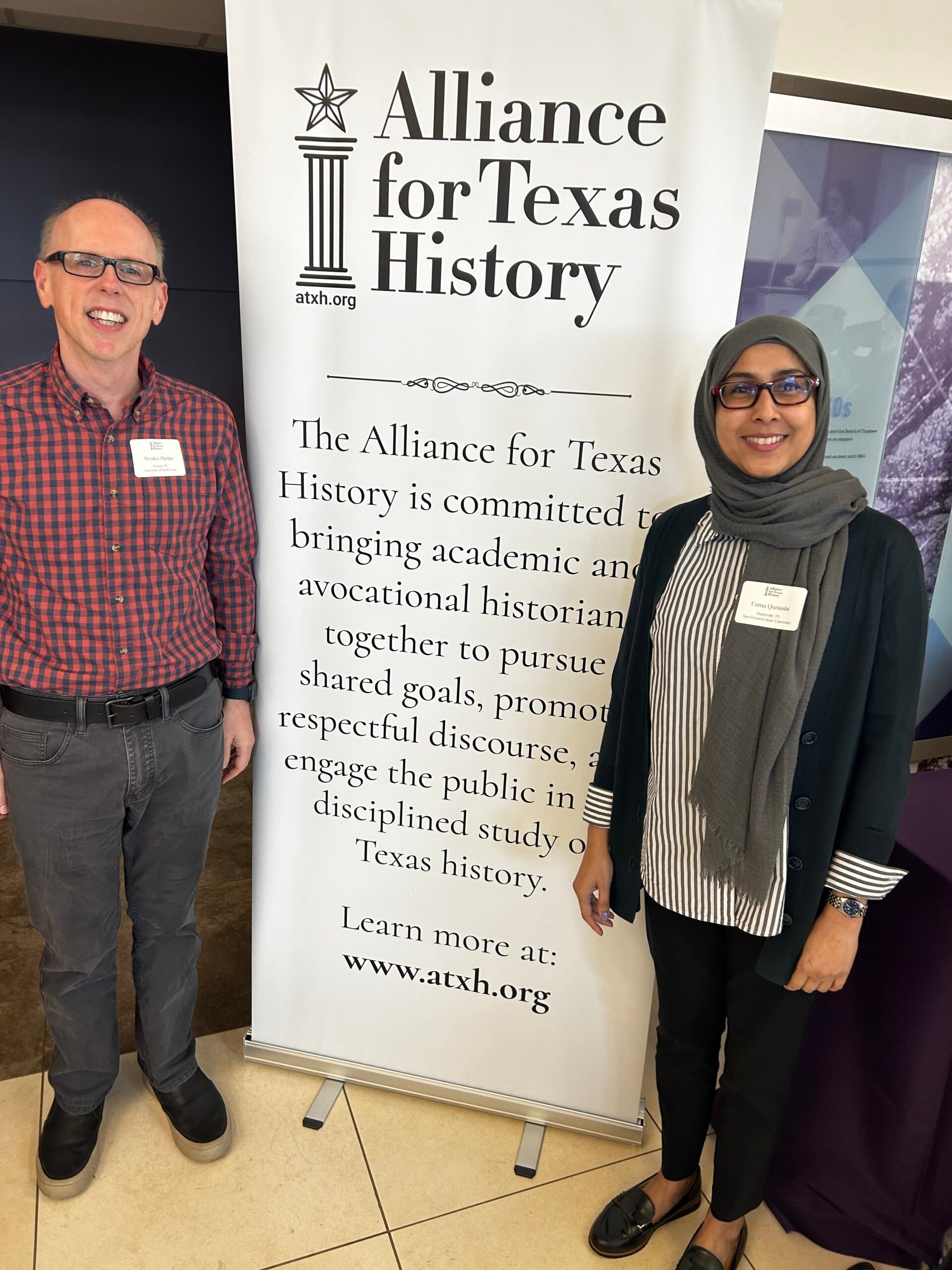
Dionne Babineaux, a graduate student at Rice University, launched a project called the Museum of Undertold Texas History in 2019, when she was homeschooling her daughter and found scant information in textbooks or lesson plans to teach African Americans about their own history. “Slaves are not allowed to take up space on our textbook pages. They are made into flat characters without a backstory and without depth,” Babineaux said. “It is imperative that we continue to work to build fuller histories, to recognize their faces, and to see the places where they lived, labored, and married.”
Since then, she’s been redigitizing and rearchiving narratives of former slaves that originally had been gathered by the Federal Writers Project in the 1930s. By building a database, labeling the narratives with people and place names, linking them to U.S. Census and other records to connect them to relatives and descendants, and then later visualizing their stories in a public space, Babineaux is making it easier for families to find stories of other African Americans born into slavery and discover their ancestors, including that of her ancestor Agatha Babino, a former slave, who was interviewed at her home in the Beaumont Freedmen’s Town of Charlton-Pollard.
Shine Trabucco, a PhD candidate for history at the University of Houston of indigenous Taos Pueblo and Quechua descent, has been working with San Antonio community groups, like the Esperanza Peace and Justice Center, to research and educate the public about the city’s American Indian and Mexican history by tracing the history of adobe homes, many of which were demolished and Mexican families displaced to create a tourist attraction known as Historic Market Square.
Whitney Nell Stewart, an assistant history professor at the University of Texas in Dallas, uses archeological findings to deepen her research, currently on the history-making of the Varner-Hogg Plantation in Brazoria County. At the conference, Stewart shared how in the 1950s when Ima Hogg, daughter of former Texas Governor James Hogg gifted the Varner-Hogg Plantation land to the state, Hogg commissioned historian Alice Killman to dig through artifacts and documents. Killman discovered that Rachel, an African American slave, had helped run the plantation, as the mistress of slaveholder Columbus Patton. Rachel directed other slaves, furnished and decorated the house, and hosted gatherings, just as any plantation owner’s wife would. But in a letter, Hogg directed the historian: “We don’t have to tell the world about that.” So for more than a century, Rachel’s story was erased. So were the stories of hundreds of other slaves who had lived, labored, raised children, and were buried at the site.
“History is a product of choices made by the historian, who, when, where, what we decide what is included, but importantly also what is excluded,” Stewart told the group. “When we choose to censor history, ignoring people that were, in fact, prominent during the time period, we do a disservice to those in the past, present, and future. Instead, let’s keep on adding, expanding, and reframing those stories.”
Members of the Alliance plan to keep broadening Texas’ history by launching a journal and hosting an even larger Texas history conference in San Marcos in May 2025.
Buenger said that the journal will present honest and inclusive history. For him, that means it takes a “past-forward approach,” starting with the primary evidence in the past, and then drawing conclusions based on that evidence. “When you start from memory, movies, and legends, and then look for that evidence in the past, it’s confirmation bias. It’s why history has been and still is misused.”
Organizers say that next year’s conference will offer even more diverse presentations, including some topics members shared with the Observer that tend to challenge what most Texans believe about the state’s status quo.
For example, three federally recognized Native American tribes in Texas, are not native to Texas, while those who are native and also currently living here, remain unrecognized, said Joaquín Rivaya-Martínez historian of Native American and Latin American history at Texas State University.
Spanish Texan women, under the old Spanish Civil Code, had property ownership rights not found in English common law, adopted by American settlers. But they lost those rights under the U.S. government. It wasn’t until 1967 that family property law in Texas changed to fully grant women property rights, said Stephanie Cole, women and gender history professor at the University of Texas at Arlington.
And while most Texans believe Stephen F. Austin brought the first wave of American migrants to Texas; the list of early American migrants should include the Native American tribes, including the members of the Cherokee, Chickasaw, and the Choctaw Nation, displaced from the east coast a decade before Austin arrived, Texas Revolution historian Sam Haynes said.
Prior to the Civil War, Texans strongly opposed politicized religion and centered the practice of Christianity on their personal relationships with God. It wasn’t until religious denominations became institutionalized, and more wealth entered these institutions that this practice started to change, said Joseph Locke, history professor at the University of Houston, and author of the book Texas Prohibitionists and Religion.
And the University of Texas Medical Branch in Galveston ran a gender-change clinic as far back as the 1970s, said Wesley Phelps, a University of North Texas professor of LGBTQ and social movement history, and also host of the podcast “Queering in the Lone Star State.”
Saturday’s event concluded with a galvanizing call to action from board member Light T. Cummins to Alliance members: “What we’re about is not an easy task. We will be facing as we are today even more obstacles. Our job is to ask hard questions, difficult questions about the past that will bring to light conclusions nonetheless that some may find unsettling and it is our job to take those unsettling conclusions and work them in the fabric of Texas history.”

